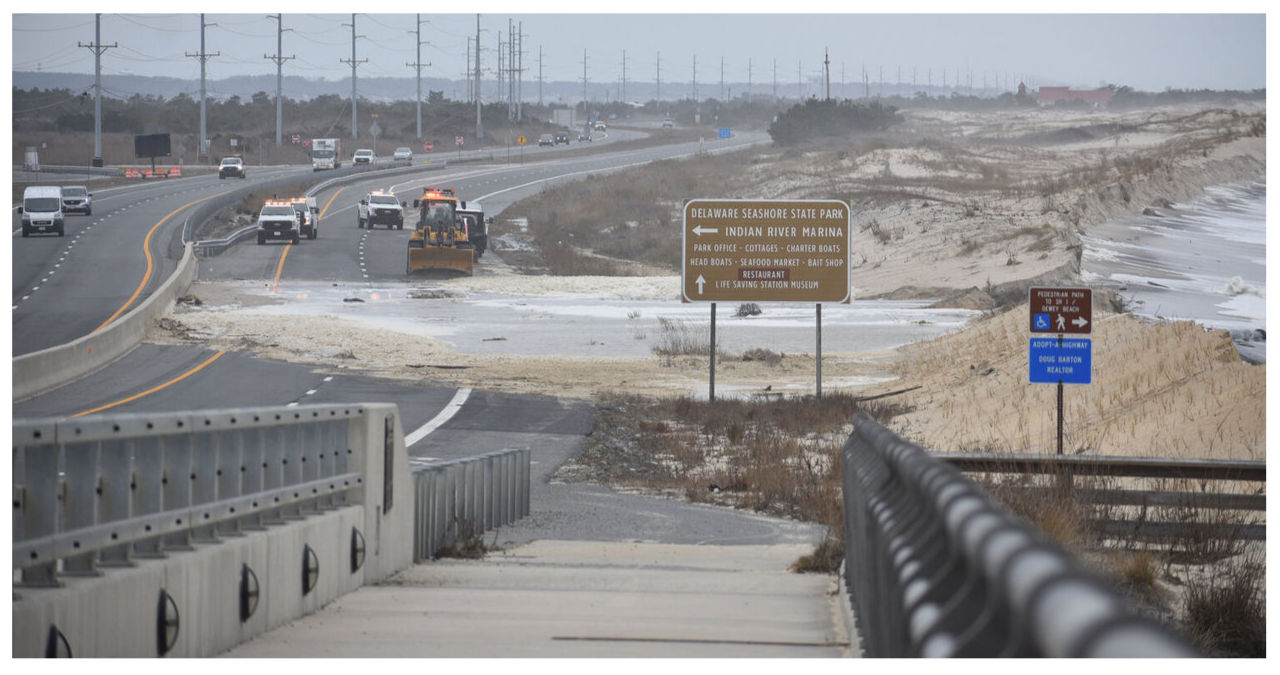The weather may still feel wintry, but let’s not forget that it’s already March. On the bright side, spring usually brings a mix of warm and chilly days, just like it did when we were kids. We used to experience long, cold winters with plenty of snow and some ice, followed by a gradual warm-up into summer. Those were the days when we would eagerly embark on summer adventures and enjoy a break from school. Interestingly, as adults, there are moments when we long for the first day of fall to escape the frenzy of summer. But let’s not rush things; soon enough, we’ll have a more leisurely transition into warmer weather.
The fish are already quite active and moving around. Despite the foul weather conditions, there are fewer people out on the water on days like yesterday. Fishing in storms and rough weather can actually be quite rewarding. The fish are biting and many anglers tend to avoid fishing during storms. Having less competition can be a good thing.
The rough surf conditions on Tuesday, combined with the high tide during the full worm moon, caused significant water to push into the dune line at Delaware Seashore State Park. Unfortunately, the northside beach has been heavily impacted by erosion this winter. Despite efforts to replenish the sand, the constant storm surges have resulted in more erosion than can be restored. On Tuesday, the dune below the Charles W Cullen Bridge on the north side of Route 1 was breached due to the force of the waves. This led to the removal of a significant amount of sand along the sheet metal bulkhead that protects the bridge access base. The lack of sand pumping from the south side for the sand relocation program over the past few years has resulted in a thin beach. As a result, older road debris is now exposed, and the erosion is even more pronounced this time. The Army Corps of Engineers is scheduled to work on the inlet soon, but it is uncertain whether this issue will be addressed in their project. There are numerous projects in this area that require attention.
Under the jetty cap of the inlet wall, there is another section that has been washed out. This section is located near the closed area, towards the inside of the bridge. Although it is not currently closed, the Army Corps of Engineers (ACOE) will begin work there next week. With each storm surge, the damaged areas are further deteriorating. It will be a relief to see this section finally being repaired. I do hope they can also restore my favorite rock, where I used to sit and fish.
DNREC and DelDOT swiftly repaired the dune breach area with commendable efficiency. The dedicated crews tackled the challenging task of battling against the forces of Mother Nature, and they did an exceptional job. Observing them transport and distribute sand to establish a new dune line, diverting potential storm surges, has been a fascinating sight. It almost feels like a scene from a summer blockbuster titled “Dune 2: The Breach, The Sea Must Flow.” With this incident, it’s a perfect time to start office pools predicting the next storm. From now on, every nor’easter will be closely monitored, as this unexpected surprise served as a reminder of the power of a full moon.
Spring conditions bring cooler days and slower fish, but don’t let that discourage you because they are still feeding. During this time of year, perch is the usual favorite, whether it’s white or yellow. Spending a day on the water can be quite rewarding, and if luck is on your side, you might find yourself spending a good amount of time at the cleaning table after a successful fishing trip.
Catching a bounty of fish is an enjoyable experience, but the task of cleaning them is not as exciting. However, I make the most of it by utilizing the parts in my gardens. While I may not be the best at filleting fish, it still suffices for our meals. Personally, I find the services provided by marinas to be exceptional. They are efficient and offer reasonable prices.
As the season transitions from spring to summer, bait and tackle shops are adjusting their hours accordingly. It’s worth visiting these establishments to explore the latest gear available on the market. The fishing industry is constantly evolving, and there is always something new and innovative to discover.
Remember, it’s important to be cautious as the water is still cold and potentially hazardous. Always wear your personal floatation devices (PFDs) and bear in mind that there is a new PFD rule in effect in Jersey. Anglers targeting striped bass often venture into Jersey waters on the Delaware Bay and River, so it’s crucial to familiarize yourself with all the applicable regulations.
Bloodworms are expected to be expensive once again this year, which may pose a challenge for anglers. However, Fishbites offers a great alternative to consider. If you do manage to get your hands on bloodworms, there are a few things you can do to extend their lifespan. Turning the bags daily in the fridge can help, and giving them a quick rinse can also be beneficial. It’s important to dispose of the algae found in bloodworm bags properly, by throwing it in a trash can rather than into the water. Even on a micro level, this algae can harbor various invasive species.



